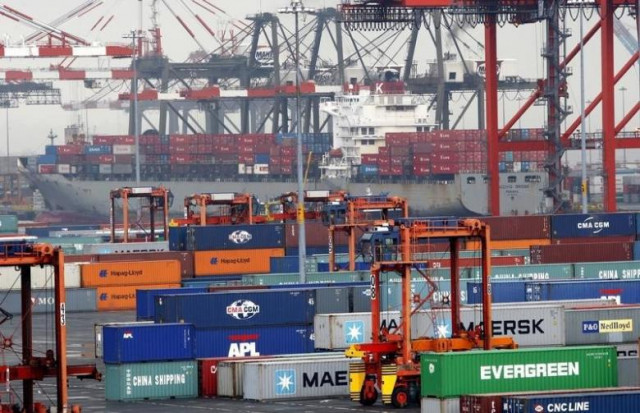Even in new trade deal, US plays hardball with China
With US tariffs now on $250b of Chinese goods, relations with Beijing have deteriorated

With US tariffs now on $250b of Chinese goods, relations with Beijing have deteriorated. PHOTO: REUTERS
Trump told reporters China wanted to open negotiations but "frankly, it's too early to talk."
With US tariffs now on $250 billion in Chinese annual exports, about half the total that comes into the US market, and Trump threatening to target the other half, relations with Beijing have deteriorated.
That has spilled over into other areas of diplomacy: A meeting between Defence Secretary Jim Mattis and his Chinese counterpart, General Wei Fenghe, to discuss security issues has been cancelled, a US defence official said Monday.
US-China trade war enters new phase
And even the new US-Mexico-Canada Agreement that updates the existing continental free trade pact reveals Washington's strategy for countering China - by essentially forbidding any free trade deals with Beijing by any of the USMCA partners.
Trump acknowledged the importance of relations with Beijing, especially in talks with North Korea, and left the door open to negotiations at some point.
"China wants to talk. We want to talk to them. We want them to help us with North Korea," he said, referring efforts to negotiate a deal to denuclearise the Korean peninsula.
But he again slammed China, saying "they have been ripping us off for so many years," and showed no sign of backing down on his threat to impose tariffs on all Chinese imports.
European, Asian factory growth sputters on weakening exports
And while many countries have complained about Trump's "saber rattling" on trade, they seem to agree "they should all be aiming their tariffs at China," Syracuse University trade economist Mary Lovely said.
Trump has threatened to impose steep tariffs on autos worldwide, again invoking a controversial national security justification, and while the USMCA protects Canada and Mexico, the threat has brought Brussels to the table.
Although most trade experts were surprised the final deal turned out as well as it did - incorporating many of the improvements from the Trans-Pacific Partnership that Trump jettisoned by backing out of that agreement on his first day in office - they say Washington's heavy-handed approach worked.



















COMMENTS
Comments are moderated and generally will be posted if they are on-topic and not abusive.
For more information, please see our Comments FAQ